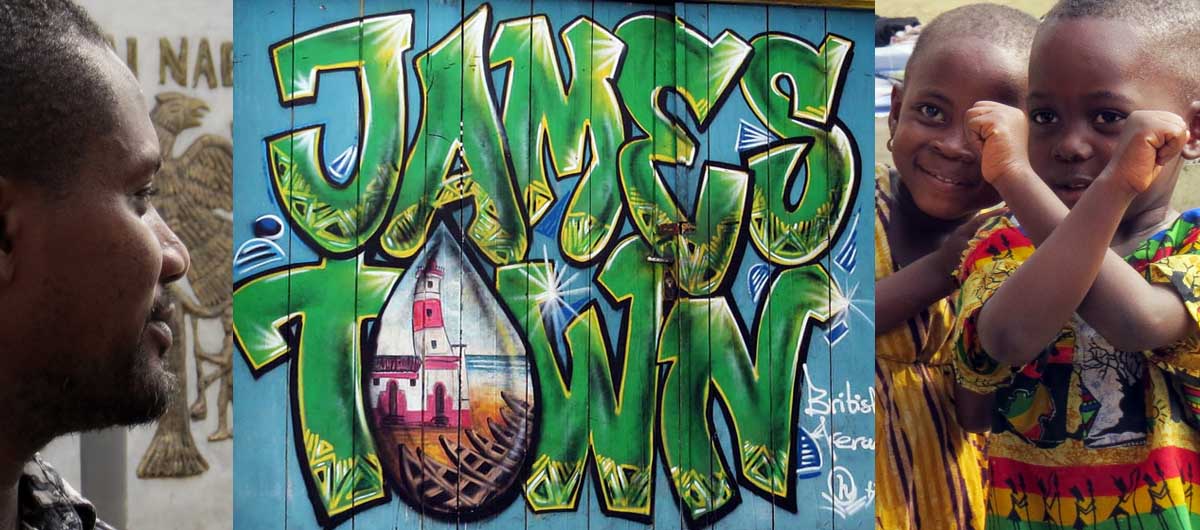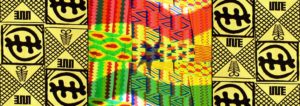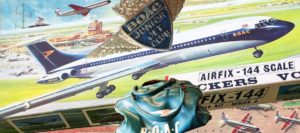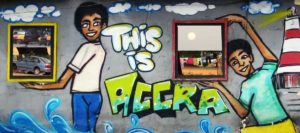Our third day in Ghana, Saturday 29th December 2018, it was time to see something of Old Accra. We followed up on an advertisement on the noticeboard at our hostel and called Jamestown Walking Tours. Jamestown with its close neighbour Usshertown, is the oldest district of Accra.
Under normal circumstances, Jamestown Walking Tours runs a guided walking tour of Jamestown on Saturdays starting at 2pm. It’s a good idea to phone them in advance, not so much to confirm the walk as to get the day’s password. The tour starts either at the Jamestown Community Theatre or at the Jamestown Lighthouse.
Passwords at the Lighthouse
Mrs SC and I arrived early at the Lighthouse, where a couple of young men immediately came up and asked if we were there for the tour. I asked for the password. They looked at one another and one of them said “Collins?” Collins was the name of one of the guides we were expecting, but it wasn’t the password. “Lee,” his friend tried. That was the name of the other guide. We laughed and said No. The chancers laughed too and accepted defeat, treating the whole thing as a great joke.
We made our way along the Cleland Road (or High Street) to the Community Theatre and looked around a bit. Lots of cheerful graffiti with uplifting messages, several locked doors and a couple of guys asleep on a bench. In a back courtyard a bunch of kids of various ages were playing football. It was passed two, so I phoned the number I’d called the previous evening. Lee answered and said he was on his way.
First, two other couples showed up, a Turkish guy and his architect girlfriend (who had just moved to Ghana to work), and a couple of Black American girls in their twenties. Then Lee arrived, followed soon after by his friend and fellow guide Collins who brought a group of people he’d rounded up at the Lighthouse. Among them, some Israelis and a Ghanaian man from “up country”. So our group was about 10 strong plus two guides.
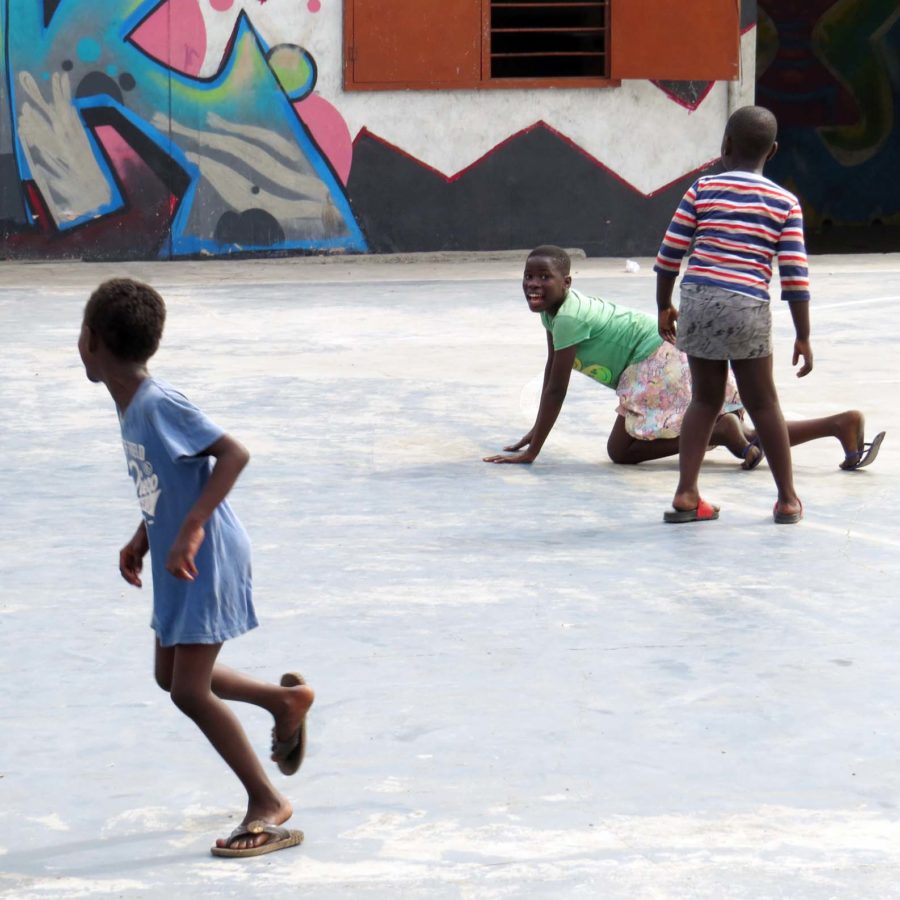
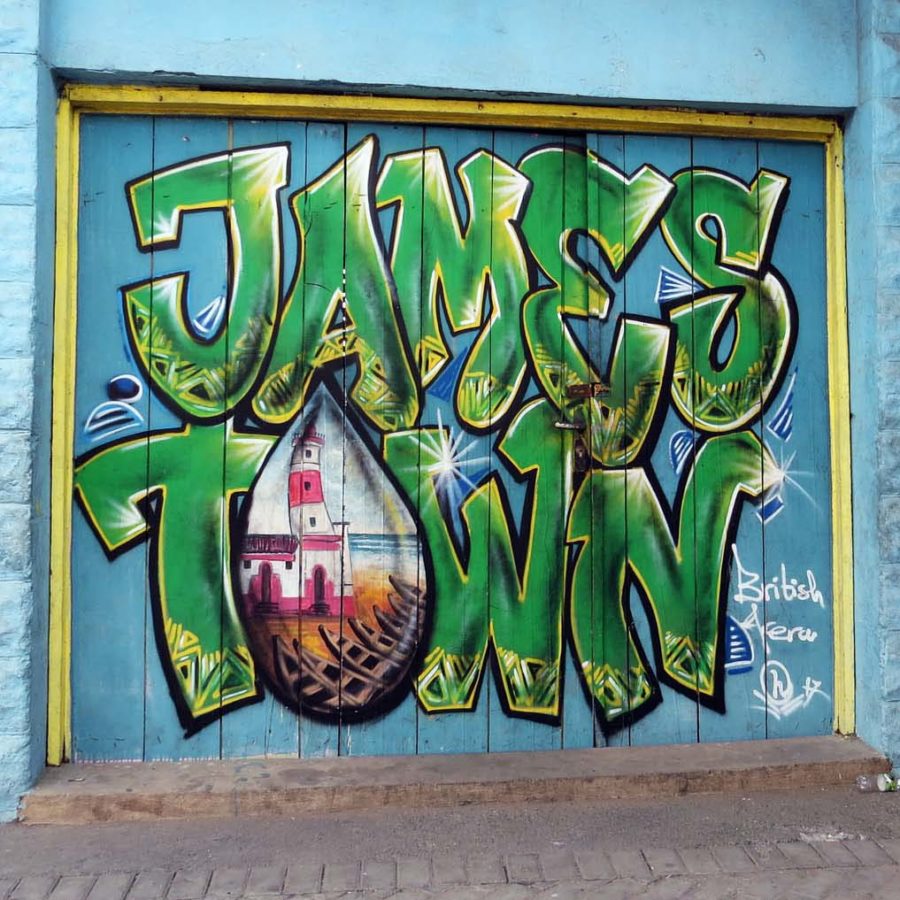
Culture in the Community Theatre
Jamestown Walking Tours is run as a local co-operative. Any profits they make are ploughed back into the local culture centre – the Community Theatre. Apart from the guided tour, they also offer a local pub crawl and customised tours taking in local events and festivals, for example. There’s more information on their website here.
Like most of the post-colonial states of Africa, Ghana is a country of several ethnic groups. One of the smaller is the Ga (Ga-Dangme), and most of the inhabitants of Jamestown (we were told) are Ga, who were the original inhabitants here before the Europeans put in an appearance. Our guides were Ga and the cultural centre the Walking Tours support is dedicated to the culture of the Ga people.
Collins opened up the theatre space to let us in. The electricity was out, so we sat around in the basic auditorium lit only by oblique light from the doorway and listened to his little introductory lecture.
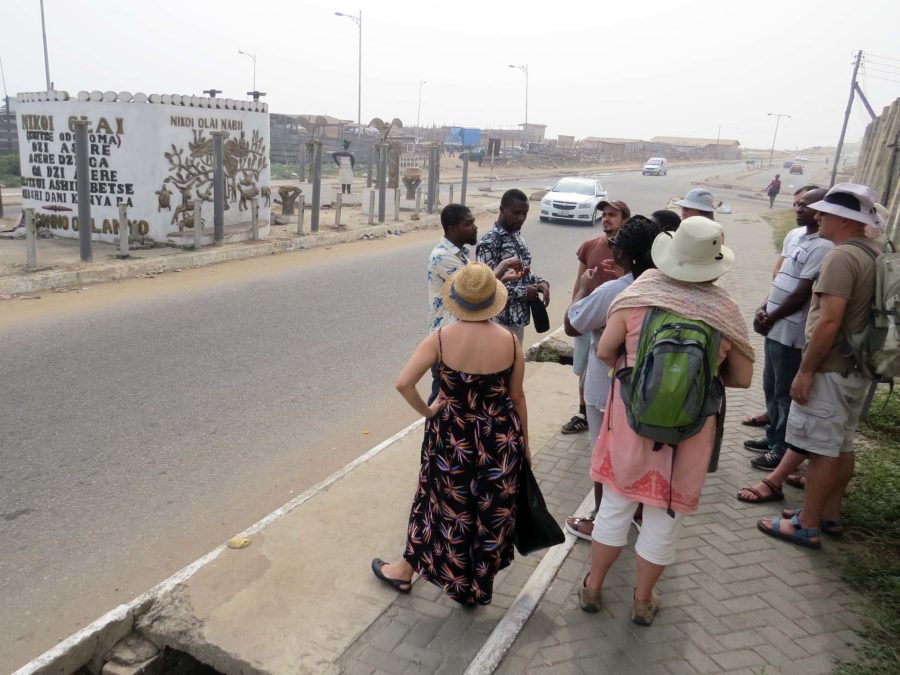
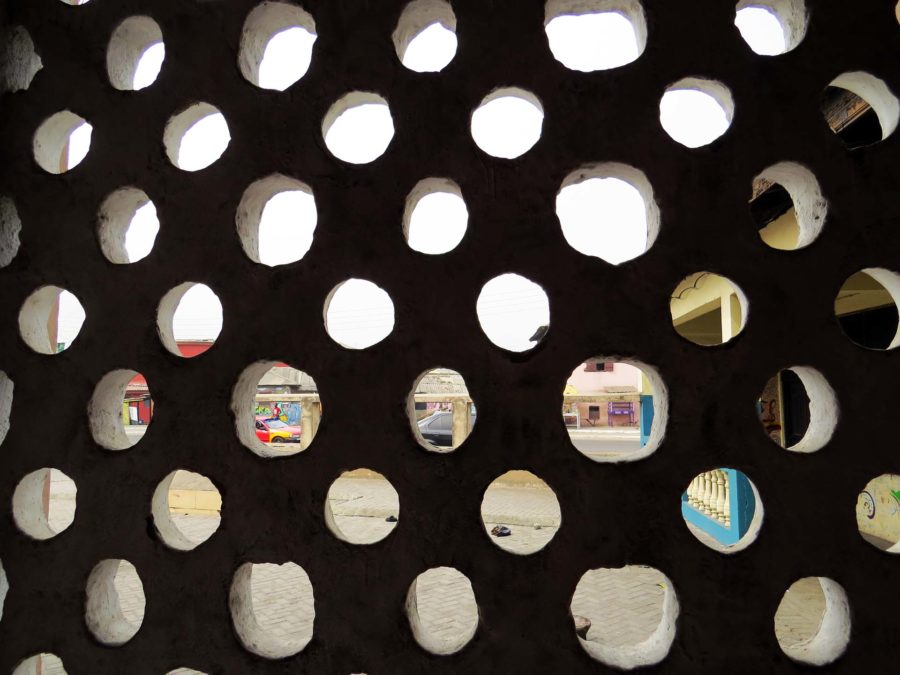
A West African Exodus
According to Ga tradition, their people migrated to this part of Africa from the east, possibly from somewhere in modern Nigeria. Sometime in the early 1500s they arrived and settled here to farm the coastal strip now occupied by Greater Accra. Later they were joined by fisher-folk coming along the coast from Nigeria. Both Jamestown and Usshertown today have their fishing fleets and fish markets.
A parade of statues on a traffic island in the road to western Accra, may commemorate the migration under the leadership of King Ayi Kushi. The story told now about the Ga migration is overlaid with Old Testament Christian references. Hearing it, in a potted version for tourists, it sounds like a religious exodus along the lines of Moses leading his people out of Egypt.
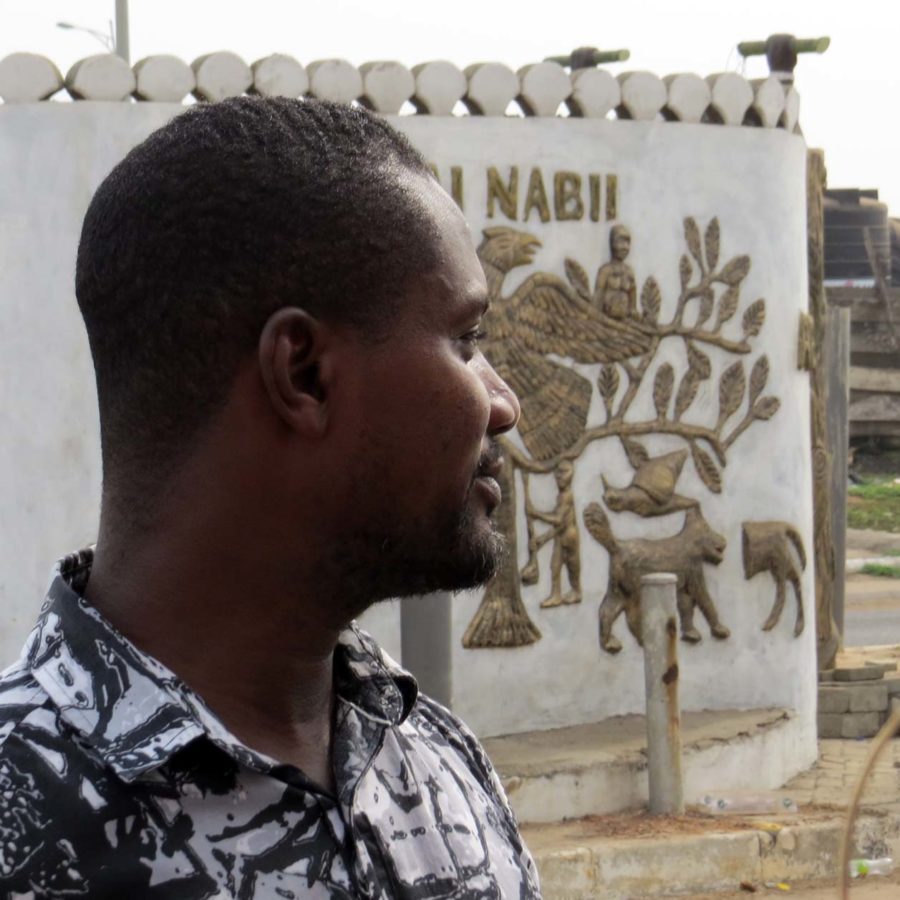
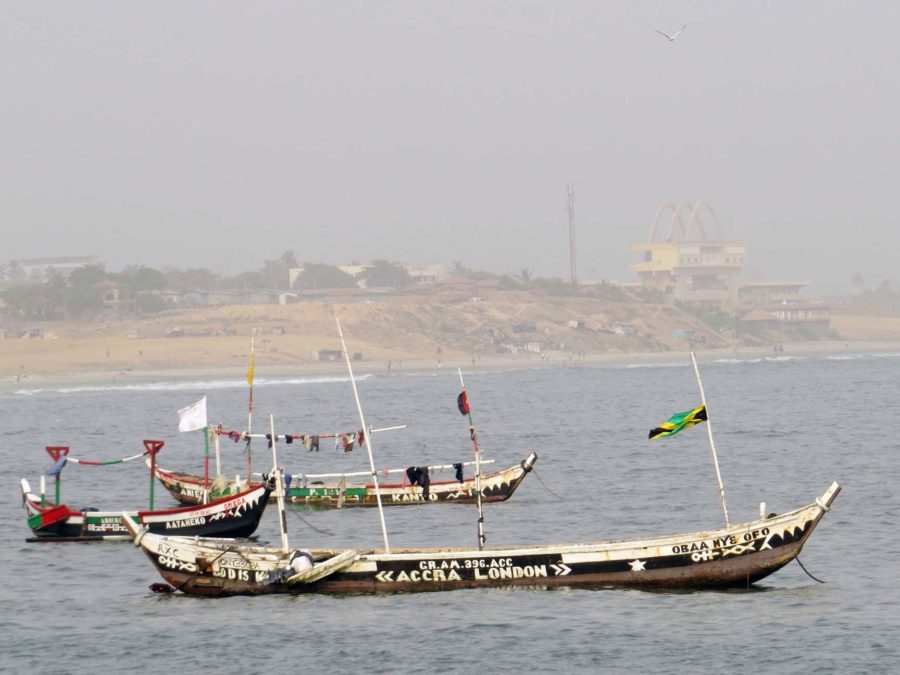
European Interference
Ga-Mashie, the Ga name for the town at the core of modern Accra, was founded around 1510. The first Europeans, the Portuguese, arrived here in the late 1500s. The Dutch were keen to build a fortress here as early as 1610, but couldn’t get an agreement with the local leaders until 1642. In 1649 the Dutch fortress became Fort Crèvecœur. The Swedes turned up next (in 1652), only to be replaced by the Danes, and then the English built Fort James in 1679. The British and Dutch crowded out the Portuguese and the Danes, then fought one another. In 1782 the English finally took Fort Crèvecœur.
Here history and Collins’ lecture parted company briefly. According to my notes, written up the evening after our waking tour, “the Portuguese fort and the Dutch fort were bought by English traders and used as family homes. The family who owned the Dutch fort were the Usshers and gave their name to the eastern part of old Accra.” Hence Usshertown.
However, my independent source of information (Wikipedia) says the fort was named after Herbert Taylor Ussher an Administrator of the Gold Coast Colony.
Regardless of their origin stories, the two towns that grew up around the two forts developed local rivalries and even today, it seems, it matters whether you are a Jamestowner or from Usshertown. Collins and Lee were Jamestowners.
In 1876 Jamestown and Usshertown became Accra, the new capital of the British Gold Coast Colony.
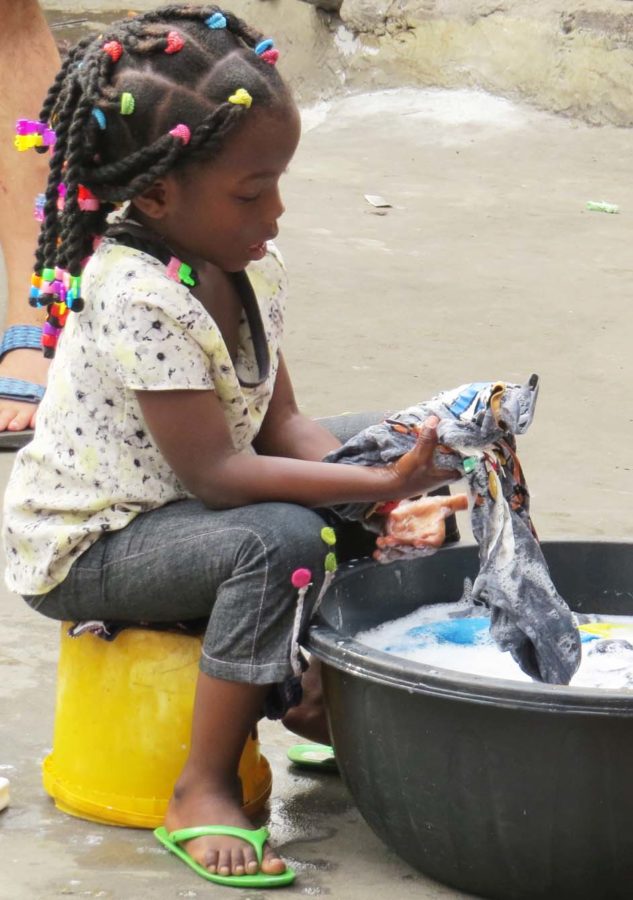
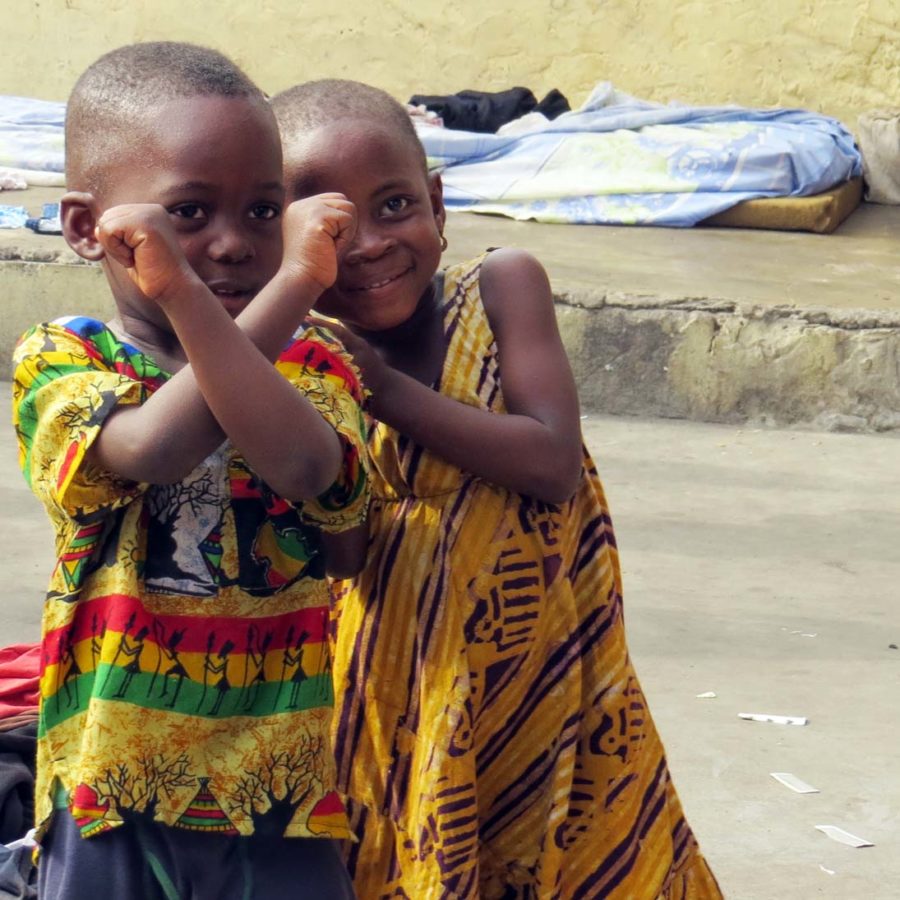
The Gold Coast
What were the forts for? Initially, to protect European traders from other Europeans.
What were they trading? Initially, gold. This part of Africa was rich in gold, and this is why the coast of west Africa was known as “The Gold Coast”.
Initially, initially. Of course it was the slave trade that came to dominate the European colonies in west Africa. The forts became places to hold the people the slave traders had bought or captured.
Gold and slaves. European interest in West Africa comes back always and sadly to these two “trade goods”. Gold and human lives equated. There will be more about the slave trade and gold as I push on with these posts.
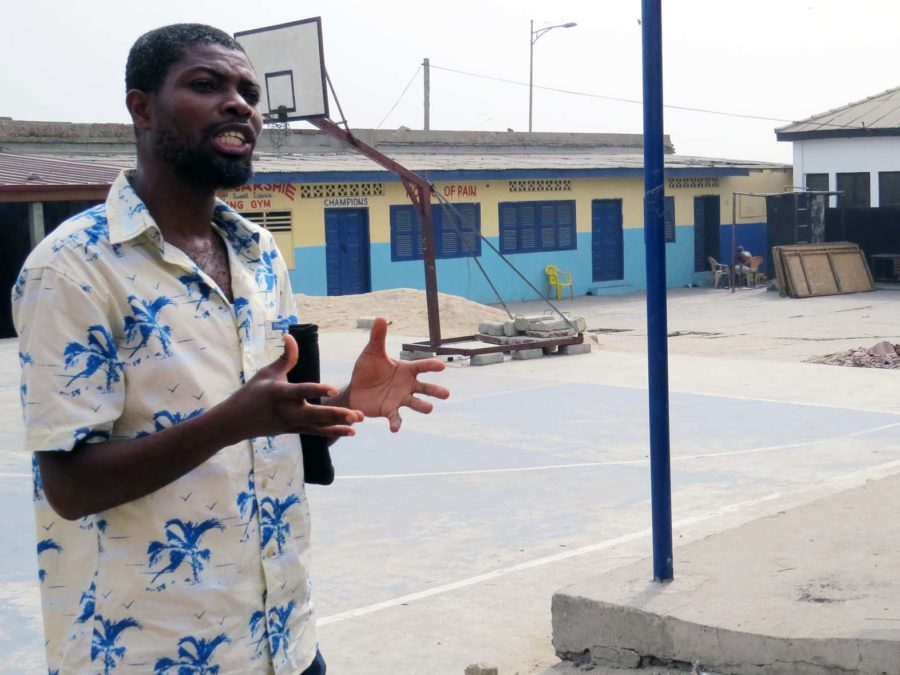
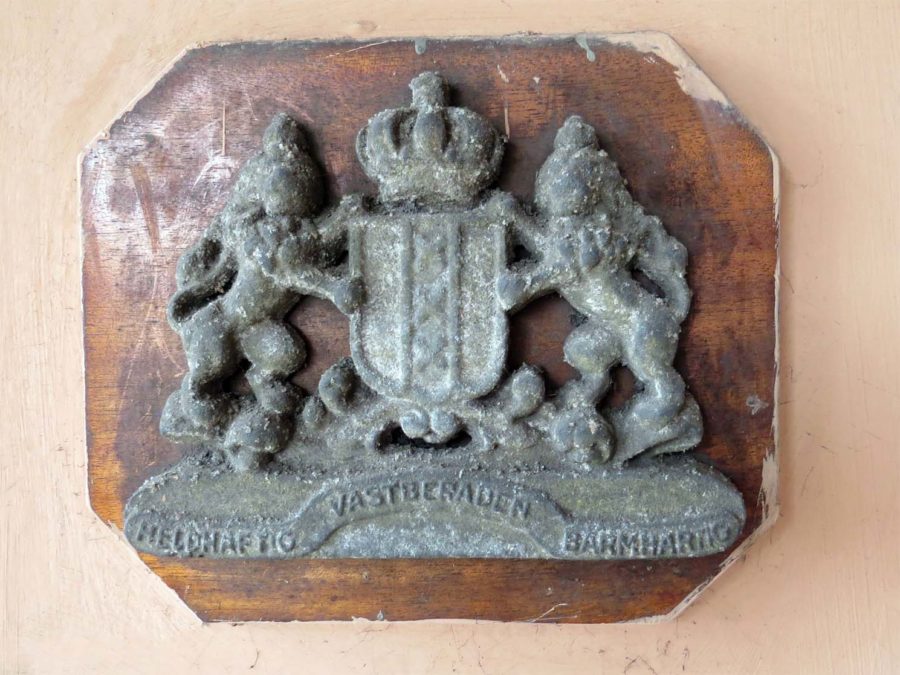
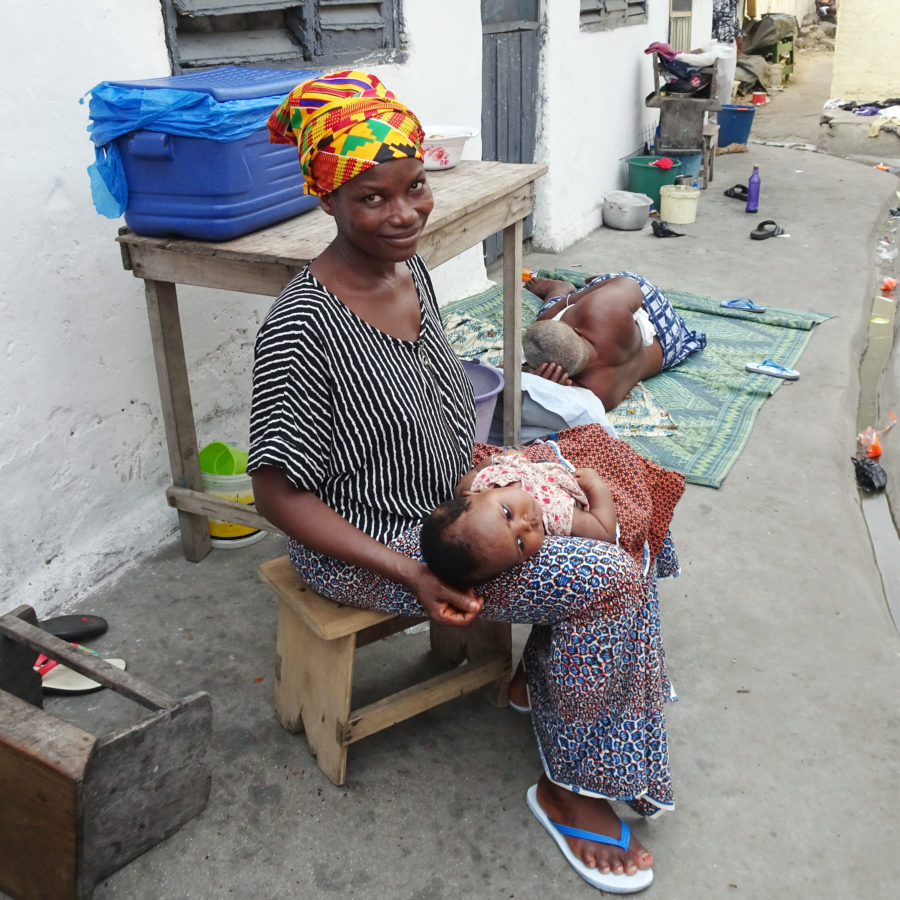
Osagyefo
When the colonial powers outlawed the trade in slaves, the forts took on a different task. They became places from where European power was exercised. And the slave dungeons became useful as prisons. Among the names imprisoned in Fort James, one stands out. Kwame Nkrumah spent time there in 1951 for advocating independence from Britain.
In 1964 when I lived in Ghana, Nkrumah was the newly independent country’s President and known as Osagyefo, the Redeemer.
Family in Ghana
Our walking tour of Jamestown took in Collins’ own family’s compound house. Compound houses, I understand, are a kind of family clan house, owned in common by the whole extended family. They are rambling structures with rooms and courtyards. Everyone contributes to their upkeep and all members of the family have the right to live there as long as they wish. Often Collins said, people will move out, to go to school, or travel abroad or to their own homes when they marry, but the house always provides a focal point for the family. People moving back from time to time, as their situations change, or they coming home on a visit, or to gather for special celebrations or commemorations.
Mind you, it’s not all sweetness and light. In the modern age, many families have extended far beyond the Accra or even Ghana’s borders. The people who stay, can feel proprietary about their family compounds. There is a big demand for land, especially in Accra, for building, so there is a big temptation to sell family property. But properly no one person owns land and no one has the right to sell it without the full agreement of all the family. But sometimes some people try. Others in the family resist. There are signs painted up here and there around Accra: This land is not for sale.
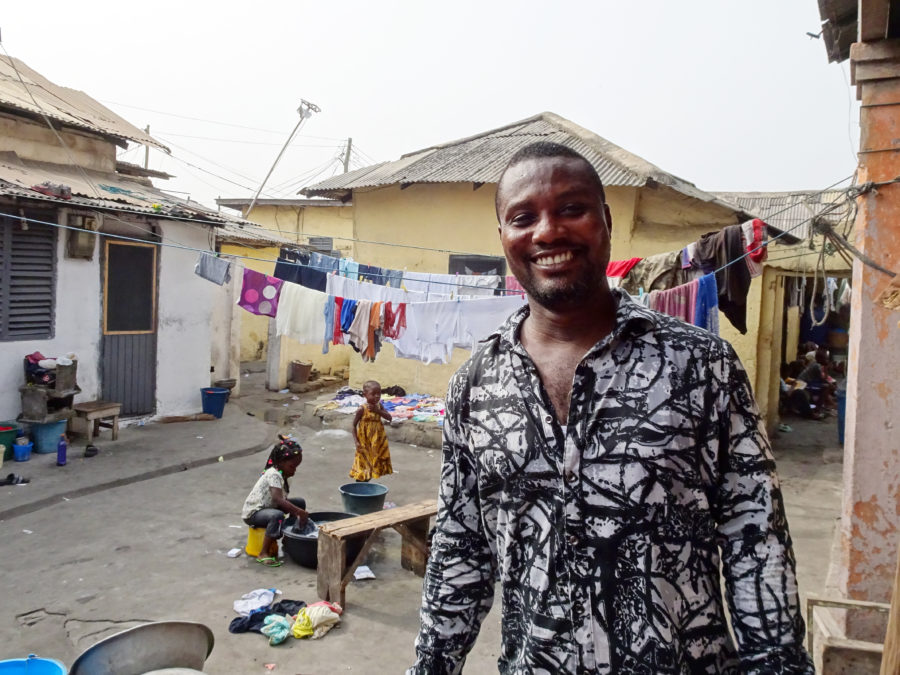
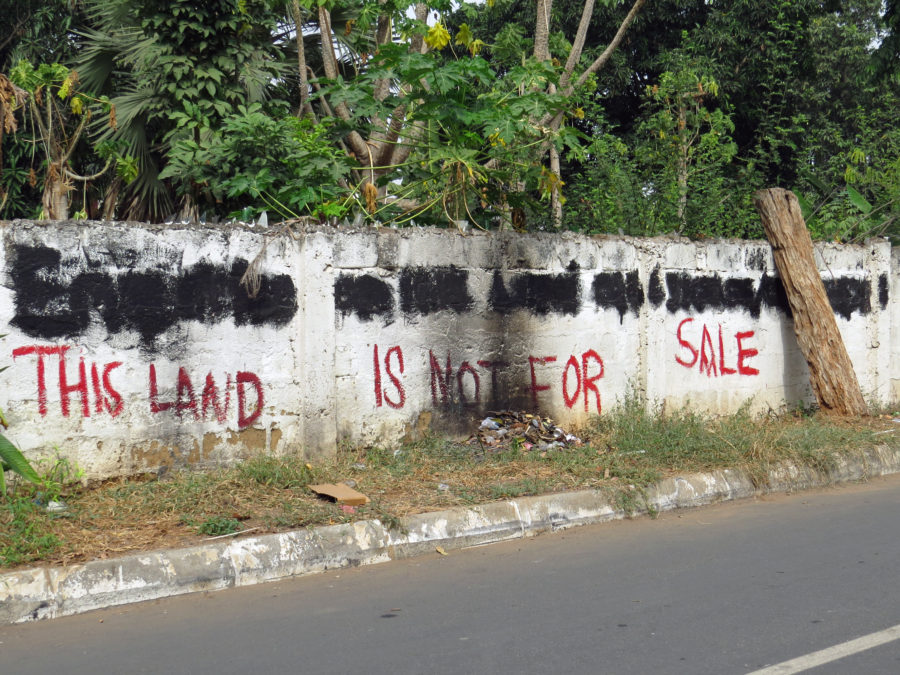
Family names
Lee had another story. Family names, he said, are very important to Ghanaians.
If a person is three or four generations removed. Perhaps they live in Australia and have lost contact with their family in Ghana. They can fly to Accra airport and say their name. The people there will tell them which part of the country to go. Then they go there and say their name again, and people will tell them which district to visit. Then again, in the district, people will know where the family compound is, so they can always find their way home.
At the end of the tour, after the rest of the tourists had drifted off, Lee and Collins solicitously found us old people a taxi and haggled us a good price (15 cedi). We returned to our hostel.

